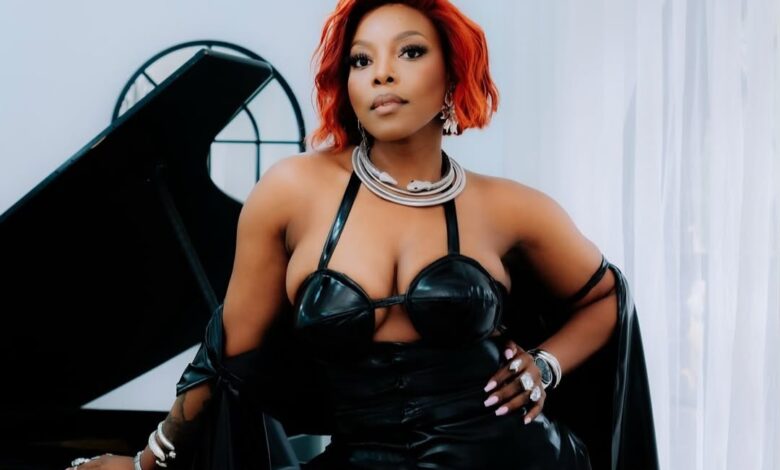Nomcebo Zikode’s “Jerusalema” Battle Shines Light on Music Industry Inequities

South African singer Nomcebo Zikode, celebrated globally for her vocals on the chart-topping hit “Jerusalema”, has revealed a distressing truth—despite the song’s monumental international success, she and her record label, Emazulwini Productions, have not received a single cent from its earnings.
The shocking revelation came in a heartfelt message shared by the artist, exposing deep-rooted contractual disputes and shedding light on the often murky world of music rights and artist compensation. Zikode’s disclosure has reignited conversations about fairness in the entertainment industry and the vulnerability of artists in complex legal agreements.
The Rise of “Jerusalema”
Released in 2020 in collaboration with producer Master KG, “Jerusalema” became an unexpected global anthem. Amid the uncertainty of the COVID-19 pandemic, the song united people across continents through its uplifting beat and viral dance challenges, particularly on TikTok and Instagram. The track soared to the top of international charts and gained recognition from global celebrities, sports teams, and even government bodies.
Yet, behind the hit’s success was a story of unfulfilled obligations. Despite contributing her vocals and songwriting to the song that brought hope and joy to millions, Zikode alleges she has not seen any financial return.
Legal Disputes and Artist Rights
Zikode recently expressed profound disappointment following a court loss against Open Mic Productions, the label behind “Jerusalema”. She described the Gauteng High Court’s ruling as “fundamentally flawed and deeply troubling.” The legal battle, ongoing since 2022, has left many questioning the integrity of artist-label relationships.
In her public statement, Zikode clarified that she was contracted to deliver two albums for Emazulwini Productions. However, she argued that fulfilling this agreement was impossible without receiving compensation for past work—most notably “Jerusalema” and her solo hit “Xola Moya Wam”. According to the singer, the original contract stipulated quarterly payments, which she claims have been completely overlooked.
Her comments sparked a flurry of responses online, with fans and industry professionals asking critical questions such as, “What kind of deal did you sign?” and “Why weren’t your royalties protected?”
A Cautionary Tale for Aspiring Artists
Zikode’s ordeal has become a cautionary tale, highlighting the critical importance of understanding music contracts. In an industry where dreams of stardom can cloud judgment, many artists sign agreements without fully grasping the implications.
Her case underscores the need for transparency and legal literacy in the music business. From royalty structures to ownership rights, artists must be informed about the contracts they sign and the long-term effects on their careers.
Understanding the Types of Music Contracts
To avoid falling into similar disputes, artists should familiarise themselves with the various contracts common in the industry:
- Recording Contracts: Define the relationship between an artist and a record label, including payment structures, profit splits, and contract duration.
- Publishing Contracts: Cover rights to song compositions and dictate how royalties are distributed between songwriters and publishers.
- Management Agreements: Detail the manager’s role, commission rates, and how long the working relationship will last.
- Live Performance Contracts: Outline the terms of gigs and events, including payment, duration, and logistical requirements.
Key Clauses Artists Should Pay Attention To
When reviewing a music contract, artists should focus on these crucial components:
- Royalties: Understand what percentage you will earn and how often payments will be made.
- Rights Ownership: Know who owns your music and whether you retain control of your creative work.
- Contract Duration: Be cautious of long-term commitments that may limit your flexibility or growth.
- Termination Clauses: Be aware of how to exit a contract, especially if the relationship turns sour or unproductive.
Negotiation Tips for Musicians
- Research the other party: Know who you’re working with and their track record in the industry.
- Don’t rush the process: Take time to read and understand every clause.
- Seek legal advice: A lawyer experienced in entertainment law can be invaluable in flagging problematic terms.
- Ask questions: Never hesitate to ask for clarification on terms you don’t understand.
- Be ready to walk away: If a contract doesn’t serve your interests, it’s okay to say no.
A Call for Industry Reform
As Nomcebo Zikode and her legal team continue to seek justice, her experience serves as a wake-up call for both emerging and established artists. Her story highlights the urgent need for improved protections and clearer contract standards in the music industry.
While the legal system may take time to reach a resolution, her courage in speaking out may inspire a broader shift towards accountability and fairness. More importantly, it serves as a crucial reminder: artistic talent must be matched with business knowledge in order to truly thrive.




